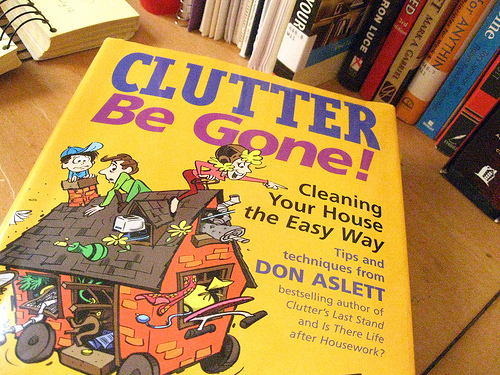When there is an addict or alcoholic in the home all sense of peace is lost. Drugs, alcohol, and the emotional turmoil that comes with substance abuse take center stage. Family members either act as if nothing is happening or fly into irrational rages while desperately searching for something to control. By the time the drug abuser is discovered, in some ways it is already too late. Without intervention the problem will probably get worse. It is rare that an addict or alcoholic wakes up one day and suddenly decides to mend his ways. He may make promises along these lines but that is usually to avoid potential consequences, not because of a sudden change in heart. Loved ones are left confused and scared, having little awareness of where to turn. Parents of addicts need tools after their son or daughter enters recovery. Abstinence does not solve all the problems created by drug abuse. With the right help parents are able to become a part of the solution while healing emotionally.
How To Cope With Emotional Turmoil With An Addict Or Alcoholic
Youth at Risk In Today’s World
It is not uncommon to hear stories about “at risk youth.” The term is often used but at times misunderstood. There are so many circumstances that put young people in potentially dangerous situations that in some ways young people are “at risk” all the time. Normally, parents compare what teenagers experience today through the lens of their own life but today’s world is a very different place. Every generation has its version of “these young people just don’t get it” but in reality things have changed significantly in the past three decades.
Guidance For Parents In Substance Abuse Recovery
The second step in Enthusiastic Sobriety is: We found it necessary to stick with winners in order to grow. For young people in recovery, the reason for this statement to be an actual step is obvious. Young addicts and alcoholics are very peer driven. If they aren’t around other sober young people they are likely to use again. What isn’t as clear is the degree to which adults are affected by the opinions of other grown-ups. Some of the worst advice parents get on how to deal with a drug abusing child comes from other well intentioned parents.
Good Intention Is Not Necessarily Good Advice
Most people are very willing to give advice to parents who are struggling with a troubled child. This is especially true if the kid in question has a drug or alcohol problem. It seems that everyone has either experienced substance abuse issues or at least knows someone who has. These experiences can be helpful but are often a hindrance. When a family is in the midst of a crisis centered on drug abuse what they need most is sound guidance. Where counsel comes from is important. Emotionally driven anecdotal tips do little good. For a plan of action a parent should consult an expert. The combination of professional counsel and empathetic support from parents who have been in a similar situation lay the foundation for a solid program of recovery.
You Are Not Alone
Having a child struggling with drug and alcohol problems does not make a parent a failure. Asking for help can be extremely difficult. The fear of judgment or the idea that somehow you have caused the problem leads to despair and isolation. There are people who understand exactly how it feels to be in this situation. Those who have found recovery have a responsibility to share what they have done to get better. Parents in need of help don’t know where to turn. There is an endless supply of irrational recommendations available. Most people in search of help have been misguided at some point. Not everyone can be expected to understand what it is like to deal with a substance abuse issue. “Sticking with winners” is a powerful tool parents can use to find help and to not feel so crazy.
Respond To Family Crisis: How To Avoid Drama At Home
When does a situation at home become a true family crisis? Is there a distinction between a disagreement and a fundamental problem? There are some circumstances that may be simple differences of opinion that escalate into full-blown catastrophes. Some situations that need attention get swept under the rug that lead to deeper troubles. A challenge within any family is learning how to curtail drama in order to handle conditions as they arise.
Where To Start?
One of the primary causes of family crisis is a lack of cohesion within the unit. Regardless of the make-up of a family, it is important that every individual involved be aware of the wants and needs of other members. Without clarity in this area everyone is left guessing, which only increases insecurity. This emotional instability can fracture relationships and cause long-term damage to trust. For example, when parents aren’t on the same page in terms of what is acceptable behavior, children will take advantage of this split in opinion. This isn’t because kids are naturally manipulative. It is due to the fact that human beings draw security from consistency. There are several ways to demonstrate love. One important method is clear and steady communication of values. When combined with flexibility this creates an environment of assurance and sanctuary.
Now What?
There are no relationships more important than those most immediate. One of the keys to maintaing peace and cohesion at home is having a collective awareness. Everyone may not agree on every issue but if conversations are open and honest it will be possible to resolve most problems. Begin by following a few simple steps:
- Be clear about which issues are truly important to you
- Don’t leave others guessing about how you feel
- Be willing to admit when your are wrong
- Avoid the temptation to jump to conclusions

Being able to face challenges is difficult when those you love are involved. Because of this fact it is imperative to try to think before reacting. When this is accomplished the chances for a situation to escalate are diminished. As a result, relationships grow closer and harmony is achieved.
Are Personal Goals Important To You? Know What You Want Before You Start
There are thousands of resources available today for anyone seeking ways to learn how to set personal goals. Many of the philosophies are very helpful and extremely positive. Where people often run into trouble is when they hope the technique eliminates the need for personal responsibility and action.
Is It You Or The Program?
I had a recent conversation with a client that is unfortunately very common. She was explaining to me that a program her family was previously involved with didn’t work because her son didn’t successfully complete it. As the discussion continued, she informed me that she didn’t follow all the recommendations and her son didn’t participate in all required activities. This illustrates a pervasive mentality in today’s culture: The more responsibility an individual has, the less likely it is he will follow through with his obligations.
Simplify the Definitions of Goals
I am a firm believer in an individual’s responsibility for his own happiness. I also think the more simple one’s responsibilities are, the more likely he will reach his goals. Some basic tips to establish clear targets include:
- Ask for the what, not the how: It is easy to focus on a particular object as a goal. However, the object simply represents a feeling. Make the emotion the focal point in order to maintain flexibility in how to achieve it.
- Taking a different route will still get you there: There are usually several different routes to any destination. Choose the one that suits you. Your choices may not be the most commonly used path, but if it works for you it is the right one.
- Reserve the right to change your mind: As you are pursuing a goal you may decide it is no longer something you strive for. It is okay to change your mind, after all it is your goal. This doesn’t mean you have failed.

Personal goals are important but they shouldn’t be sources of stress and anxiety. Relax and enjoy your pursuits. As you do, you will find plenty of motivation along the way. Happiness is both divinely inspired and the intrinsic right of everyone!
What Is A Successful Relationship? Learn To Connect With Confidence
How do you define a successful relationship? Some would say it is a connection in which both parties see eye to eye. Others may describe it as a partnership that has mutual trust and understanding. Most agree that opencommunication is a key ingredient to a positive association. All of these opinions about successful relationships are accurate, however the most important definition you can have… is yours.
Success As You Know It
Most people inherit a partial definition of success. You may have developed one over time that works very well. It is also common to pattern relationships after those we see as children. This doesn’t mean we are powerless to change, it merely provides a basic template. As we gain our own experiences, these interpretations are either enforced, discarded or seriously challenged. In order to gain a true understanding of prosperity on any level, we must own it for ourselves. This is also true in the formation of personal and professional relationships.
Connect From A Place Of Confidence
We all experience bouts of doubt and insecurity. Every person can understand that life contains difficult challenges. One task that contains particular difficulty is establishing intimacy and vulnerability in relationships. The key is to be confident in your definitions of success, happiness and personal growth. When you are clear about where you stand, you will seek colleagues who assist you in the direction you hope to grow. Relationships, like every aspect of life, continue to evolve. Some of these natural changes will strengthen the bonds that have been established. Other transformations signal the end of seemingly strong ties. Either way, the more self-assured you are, the more you will be aware of the benefits of these evolving relationships.
Creating a clear and personal definition of a successful relationship is worth the time it takes to produce. Just remember to be confident in your own ideas, allow yourself to evolve over time and trust yourself as you use this definition to increase the joy in those you share your life with.
Let Go Of Fear: How To Gain Power Over Emotion
Fear is a very powerful emotion. In fact, some say fear is the primary motivator in many people’s lives. Because of the prevalence of this common state it is important to be aware of its potential effects.Two of the most dangerous characteristics born out of anxiety of any kind are self-centeredness and arrogance.
The Power Of Fixation
When a person allows his angst to consume his life, he traps himself into the position of thinking about and talking about what he is afraid of as often as possible. The people around him are held hostage by these constant conversations. He may become so consumed by his phobias that he builds protective walls around himself .These barriers usually consist of self-righteous opinions and assertions that confuse those around him.
Whether a person becomes self-centered or arrogant as a result of his fears, the end result is the same: he will have a complete lack of intimacy in his life.
Learn To Respond
When you go in for a routine physical, a common experience is the reflex test. The doctor takes the rubber mallet and gently raps the knee. The leg instinctively kicks out as a reaction to this strike. If the doctor is standing in front he may take a direct kick as a result of this reaction.The result is similar when you react to fear. There is an innate expectation for something to go dreadfully wrong and as a result, you may lash out at the people around you. The most common reaction to fear is anger. When you react out of anger, you generally say or do something you later regret. Some attitudes have developed after years of repeated actions. After much repetition these reactions become ingrained. People in your life are subject to emotional backlash.
Live In The Solution
Becoming aware of patterns of negative compensation for emotional instability is half the battle. The priority then becomes developing a plan of action to change. When you are able to act in a more positive manner you have the power to let go of any emotion. Seek the help and guidance of someone who can provide you with simple solutions. As you change what you do your emotions will follow suit. With consistency and practice you will gain confidence and see change in your relationships and other areas of your life.
Remove The Clutter From Relationships:How To Release Negative Patterns
In any relationship, the process of removing clutter starts within. It begins by identifying limiting beliefs and perceptions that no longer serve a useful purpose. These beliefs and perceptions may manifest in the form of scriptsthat have been handed down for generations. It is possible to suddenly realize negative relationship patterns in several areas that have been present for years.
When these patterns become evident, there may be a feeling akin to being cluttered. The thought of a specific person may create an immediate reaction of anxiety. There may be a situation that needs to be addressed directly, but the prospect of candid communication is terrifying.This can be an indicator of limiting beliefs manifesting in relationships.
Removing the clutter allows you to determine which relationships fall into which category. With a quick assessment you may realize that there are negative patterns of behavior that you’ve wanted to change all along. You may also discover that there are destructive relationships you’ve wanted to end. However, you’re not going to know that until you stop for long enough to do an accurate assessment. Some of these take a simple decision to change, followed by a plan of action. If you were cleaning your garage you would notice items out of place along with things you just want to get rid of. See box; remove box. Discover C-clamp; place on shelf.The same is true when taking inventory of relationships. Some may require more effort and extra help, but the willingness to take an honest look gets you started. Relationships are like spring cleaning in that once you have a plan and begin putting in the work, it flows. Your confidence builds. Your self-esteem builds. You see some changes go on in your life.
It is possible to stop tripping over the emotional boxes in your life. There will be relationships you rediscover andconnections that will be strengthened. You will be able to finally deal with toxic relationships that take up unwanted space in your head. You will be open to more possibilities. Removing the clutter creates the space needed to welcome what’s new and possible in your life. You’ll be amazed, as you remove the clutter, what opportunities begin to show up.
Intimacy In Relationships: Is It A Challenge Or A Chore?
How do you view establishing intimacy in relationships? Do you view it as a way to challenge yourself and stretch your emotional muscles? Or do you view it as a daunting chore which will never be accomplished?Depending on where you stand with this issue says a lot about the level of closeness in your relationships. Intimacy can be an easily misunderstood and scary topic to discuss but it is a critical ingredient in a complete life.
Intimacy In Context
Intimacy is defined as close familiarity or friendship. It is established by being engaged and connected with others. This engagement allows vulnerability for both involved parties. Most people would agree that the establishment of a deep level of closeness enhances the quality of life. Any successful relationship involves a degree of intimacy. This applies to personal, professional, and romantic relationships.
Rising To The Challenge
When a fear of intimacy is identified the task then becomes determining how to transcend the aversion in order to establish bonds. Usually this fear is rooted in the belief that others aren’t trustworthy and will inevitably cause pain. This can be overcome by realizing that each relationship is unique and shouldn’t be based on situations from the past.
Face The Fear With Fun
Establishing intimacy does involve emotional risk. For many, the risk involved strikes terror. As with anything else, an attitude of fun and enthusiasm allows some of the fear to subside. Some examples of facing these fears with an attitude of fun include:
- spending time with people doing things you both enjoy
- laugh with people….. a lot
- approach people who seem to be relaxed and approachable

Getting close to people doesn’t have to feel like work. It is difficult for most people. With a change in attitude, establishing intimacy in relationships can become a challenge worth accomplishing. How can you change your perspective in this area?
Do You Have Relationship Trust? How To Connect With Confidence
Relationship trust can be elusive, particularly for those who have been hurt in the past. Although trust can be an ambiguous quality, it is vital in creating meaningful and lasting connections. Anyone with a strong desire to build relationship trust is capable of finding the necessary steps to do so. These steps include identification of past hurts, the willingness to let these feelings go, and the determination to seek and find people with whom it is possible to build relationship trust.
Establish Self-Trust
“Self trust is the first secret of success.” ~ Ralph Waldo Emerson
The first area to explore is trust with self. Often a person has difficulties building confidence in others due to a lack of trustworthiness. If honesty or integrity have been a challenge there will be an innate mistrust of others. The development of personal honesty in all interactions is the first priority.
Let Go Of Past Hurt
It is common for people to establish negative relationship patterns due to pain from past experiences. Many fear that acknowledging these situations is the equivalent to opening Pandora’s box. In reality, the toxic memories are kept alive through denial. In order for the past to lose its grip on today’s decisions these painful recollections must be accepted. Once they are accepted it is possible to let go of these feelings by following some simple, although challenging, steps:
- Make a list of painful memories
- Seek a counselor, coach, spiritual advisor, or friend with whom these memories can be shared
- Follow the advice of this trusted advisor to establish positive patterns in the present

Relationship trust is essential to establishing strong bonds. These deep connections are vital to a fulfilling and rich life. It is always an option to find a more positive direction particularly when there is a willingness to seek help and guidance.